Federal Economic Statistics Advisory Committee
The Federal Economic Statistics Advisory Committee (FESAC) advises the Directors of the Department of Commerce's statistical agencies, the Bureau of Economic Analysis (BEA) and the U.S. Census Bureau, and the Commissioner of the Department of Labor's Bureau of Labor Statistics (BLS), on statistical methodology and other technical matters related to the collection, tabulation, and analysis of federal economic statistics.
Upcoming Meetings:
- June 13, 2025 *Meeting Canceled*
Current Members
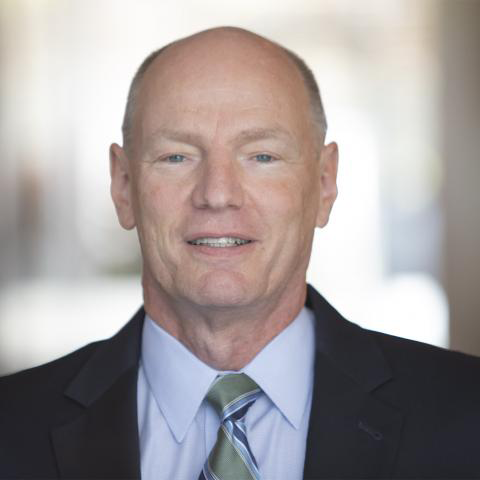
David Wilcox
(FESAC Chairman)
Peterson Institute for International Economics and Bloomberg Economics
David Wilcox is a senior fellow at the Peterson Institute for International Economics and director of U.S. economic research at Bloomberg Economics. His current research focuses on the U.S. macroeconomy and monetary policy. Previously, he served roughly 30 years as a member of the staff of the Federal Reserve Board, including as deputy director (2001-11) and director (2011-18) in the Division of Research and Statistics. In the latter role, he functioned as the chief economist of the division, a senior advisor to three successive chairs of the Federal Reserve Board, the division's lead for strategic direction, and its chief manager. He also served as assistant secretary for economic policy at the Treasury Department from 1997 to 2001, and as a senior economist at the Council of Economic Advisers from 1994 to 1995.
Wilcox is the author of many publications that have appeared in both scholarly and non-technical outlets. He received a Ph.D. in economics from the MIT and a B.A. in mathematics from Williams College.
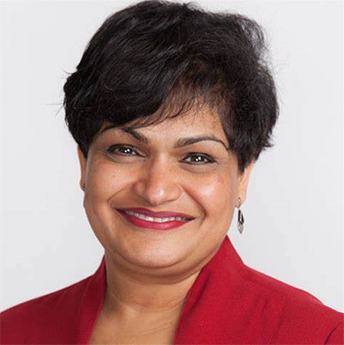
Rajshree Agarwal
University of Maryland
Rajshree Agarwal is the Rudolph P. Lamone Chair of Strategy and Entrepreneurship at the University of Maryland Robert H. Smith School of Business and director of the Ed Snider Center for Enterprise and Markets.
In her research, Agarwal studies the kinds of institutions that support innovation and enterprise, as well as the implications of entrepreneurship and innovation on firm and industry evolution. Her work looks at knowledge diffusion among firms, industries, and regions.
Agarwal is a fellow at the Academy of Management and the Strategic Management Society, as well as editor of the Strategic Management Journal. Prior to coming to Maryland, Agarwal was a professor in the College of Business at the University of Illinois Urbana-Champaign and has also taught at the University of Florida. She has received numerous awards for her research and teaching.
Agarwal has a Ph.D. in industrial organization economics from the University at Buffalo and a M.A. in economics from Bombay University.
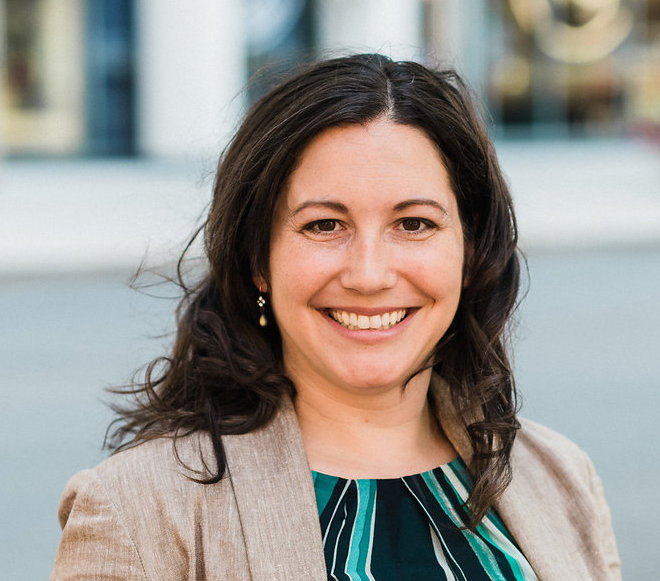
Christine Baker-Smith
National League of Cities
Christine Baker-Smith is the director of research at the National League of Cities. A sociologist, her research is focused on basic needs insecurity within higher education. She also examined cities’ use of federal Covid recovery funds from the 2021 American Rescue Plan Act.
Baker-Smith done research into the success of nudges like text messages to encourage higher education students to sign up for benefits, as well as the impact of transitions across institutions on student behavior and school choice. In addition, she analyzed the results of the #RealCollege Survey, which examines students’ basic needs.
Prior to coming to the National League of Cities, Baker-Smith served in several roles at the Hope Center for College, Community, and Justice, including as senior director of research and evaluation and executive director. She was also data and evaluation manager at the Fiver Children’s Foundation. She has served as faculty in the Quantitative Methods in Social Sciences master’s degree program at Columbia University.
Baker-Smith earned a B.A. in sociology from Whitman College, a M.A. in the sociology of education from Stanford University, a Ed.M. in leadership, policy and politics from Columbia University, and a Ph.D. in education and sociology from New York University.

Avinash Collis
Carnegie Mellon University
Avinash (Avi) Collis is an assistant professor at the Heinz College of Information Systems and Public Policy at Carnegie Mellon University.
His research interests include the economics of digitization, focusing on measuring the welfare gains from digital goods. He has published several papers in premier academic journals, and his research has been covered in major media outlets and policy reports.
Prior to Carnegie Mellon, Collis was an assistant professor at the University of Texas at Austin. He now teaches courses related to Technology Strategy and Experimentation.
Collis received his B.Tech. in Computer Science from the Indian Institute of Technology Delhi, M.S. in Management from ESSEC Business School and University of Mannheim, and Ph.D. in Management Science from MIT Sloan School of Management.

Jason Faberman
Federal Reserve Bank of Chicago
Jason Faberman is a senior economist and economic adviser in the Research, Policy, and Public Engagement Department of the Federal Reserve Bank of Chicago. His research focuses on the labor market, with a particular focus on the interaction between employers and workers. Faberman has studied these interactions at the micro level, across the broader macroeconomy, and across urban areas.
His research has been published in various journals, including the Quarterly Journal of Economics; Econometrica; the American Economic Review; the American Economics Journal: Macroeconomics; the Journal of Monetary Economics; the Journal of Economic Perspectives; and the Journal of Urban Economics.
Prior to joining the Federal Reserve Bank of Chicago, Faberman served as a senior economist with the Federal Reserve Bank of Philadelphia and as a research economist with the U.S. Bureau of Labor Statistics. At BLS, he worked extensively on developing and enhancing the Job Openings and Labor Turnover Survey (JOLTS) and the Business Employment Dynamics (BED) data. Faberman currently collaborates with a team of economists to produce the annual Job Search Supplement to the Survey of Consumer Expectations, which is administered through the Federal Reserve Bank of New York. He has taught at the University of Chicago’s Booth School of Business and the University of Maryland, College Park.
Faberman received a B.S. in environmental science and a B.A. in economics from Lehigh University, and an M.S. and Ph.D. in economics from the University of Maryland.
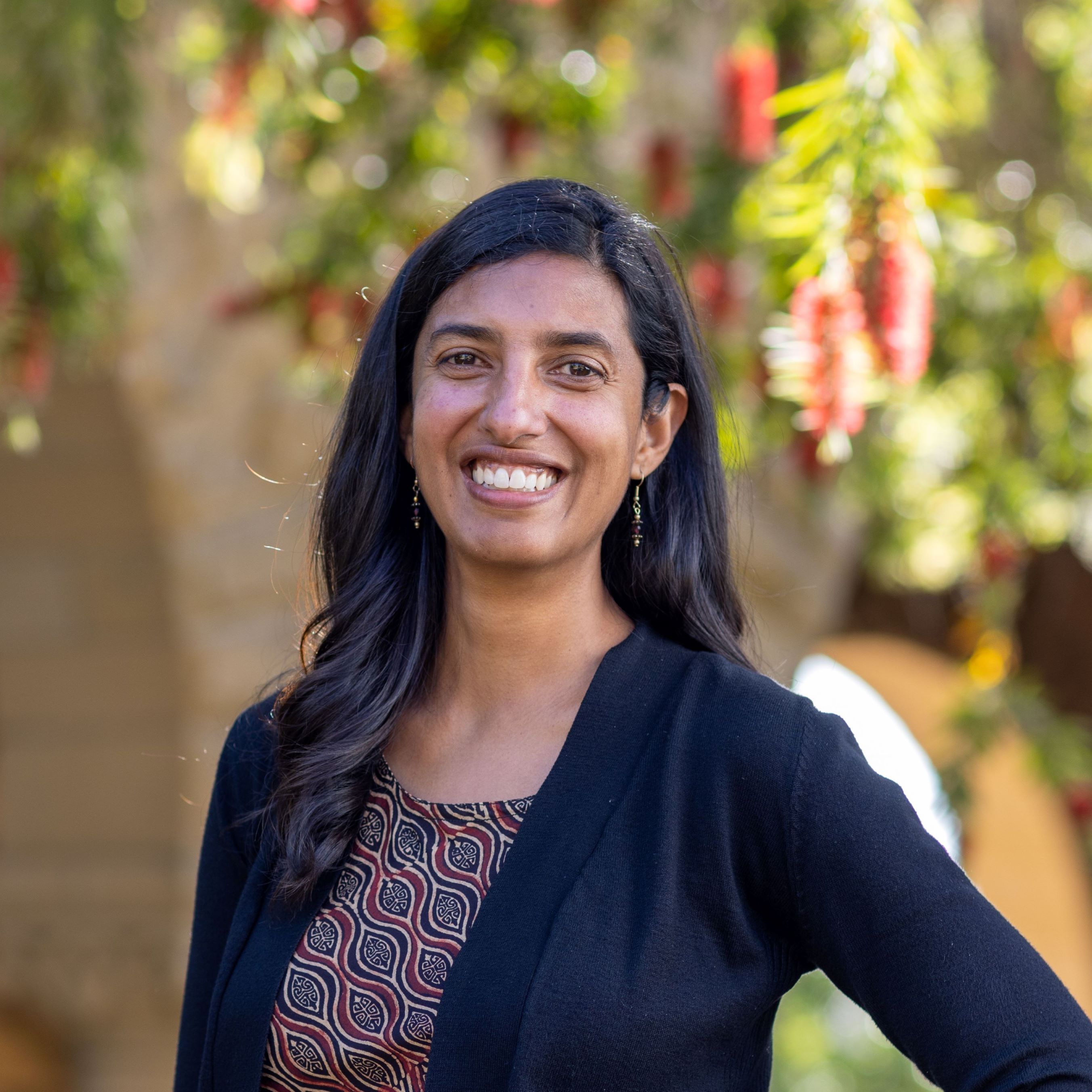
Gopi Shah Goda
Brookings Institution
Dr. Gopi Shah Goda is the Director of the Retirement Security Project, the Alice M. Rivlin Chair in Economic Policy, and Senior Fellow in Economic Studies at the Brookings Institution. She is also a Research Associate at the National Bureau of Economic Research and a Fellow of the Society of Actuaries. Dr. Goda served as a senior economist at the White House Council of Economic Advisers from July 2021 to July 2022, and was on California Governor Gavin Newsom's Council of Economic Advisors from January to August 2024.
Dr. Goda conducts research that informs how policy can best serve aging societies, including how individuals make healthcare, saving and retirement decisions as they age and the sustainability of public programs serving older populations. Her work has appeared in a variety of leading economics journals, has garnered coverage in major media outlets, and has frequently been cited in policy discourse, including government reports, agency rulemaking, and by legislative bodies. She is a founding member of Briefing Book, a collaboration among economists with research and policy experience that aims to help its readers develop informed views about economic policy issues.
Prior to joining Brookings, Dr. Goda was a Senior Fellow at the Stanford Institute for Economic Policy Research (SIEPR), serving a term as Deputy Director, and Professor of Economics and Health Policy (by courtesy) at Stanford University. Dr. Goda earned her BS in mathematics and actuarial science from the University of Nebraska - Lincoln, obtained a PhD in economics from Stanford University, and completed a postdoctoral fellowship as a Robert Wood Johnson Scholar in Health Policy Research at Harvard University.

Fiona Greig
Vanguard
Fiona Greig is global head of investor research and policy in Vanguard’s Investment Strategy Group, where she leads Vanguard’s global retirement and investor behavior research efforts. She specializes in household finance and the use of financial data to drive insights for both policymakers and business leaders.
Before joining Vanguard in 2022, Greig was co-president and founding research director of the JPMorgan Chase Institute for more than seven years. During her tenure, she authored more than 40 papers covering a range of household finance topics, including income and spending trends, student loan and housing debt, the gig economy, and the impacts of fiscal relief policies, all with an underlying focus on low- and moderate-income families as well as racial and gender disparities.
Earlier in her career, Greig was deputy budget director for the city of Philadelphia, a consultant at McKinsey & Company for public and social sector clients, and a consultant at the Washington DC Economic Partnership. She has also been an adjunct professor at the Harvard Kennedy School, the University of Pennsylvania, and Georgetown University. Greig earned a Ph.D. in public policy from Harvard Kennedy School and a B.A. in international relations from Stanford University.
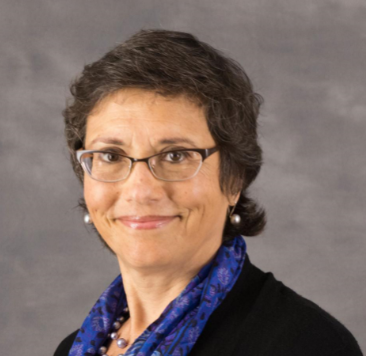
Erica Groshen
Cornell University and Upjohn Institute for Employment Research
Erica Groshen is senior economics advisor at the Cornell University School of Industrial and Labor Relations and a research fellow at the Upjohn Institute for Employment Research. From 2013 to 2017, she served as commissioner of the U.S. Bureau of Labor Statistics, the principal federal agency responsible for measuring labor market activity, working conditions, and inflation. Before that she was vice president in the Research and Statistics Group of the Federal Reserve Bank of New York. Her research has centered on jobless recoveries, wage rigidity and dispersion, and the role of employers in the labor market.
Groshen is the lead author of “Preparing U.S. Workers and Employers for an Autonomous Vehicle Future,” with Susan Helper, John Paul MacDuffie, and Charles Carson. She also co-authored “How New is the ‘New Employment Contract’?” and co-edited “Structural Changes in U.S. Labor Markets: Causes and Consequences.” She received the 2017 Susan C. Eaton Outstanding Scholar-Practitioner Award from the Labor and Employment Relations Association. She holds a Ph.D. in economics from Harvard and a B.S. in mathematics and economics from the University of Wisconsin-Madison.

Svenja Gudell
Indeed
Svenja Gudell is the chief economist at the worldwide job site Indeed. She oversees Indeed’s economic research team, the Hiring Lab, which is a global team of economists and data scientists, leading the global labor market conversation. The team is recognized by a wide audience of media, policymakers, and professionals for its impartial, data-driven insight into the labor market, the broader economy, and the relationship between the two.
Gudell currently serves on the Board of Directors for the National Association for Business Economics. Prior to joining Indeed, she was chief economist at Zillow Group. Previously, she worked on economic, financial, and strategic consulting for Analysis Group, and was an assistant economist in the research group of the Federal Reserve Bank of New York. Gudell has a bachelor’s degree in economics from the University of Rochester, a master’s in economics from New York University, a master’s in business administration from the University of Rochester, and a Ph.D. in finance from the University of Rochester.
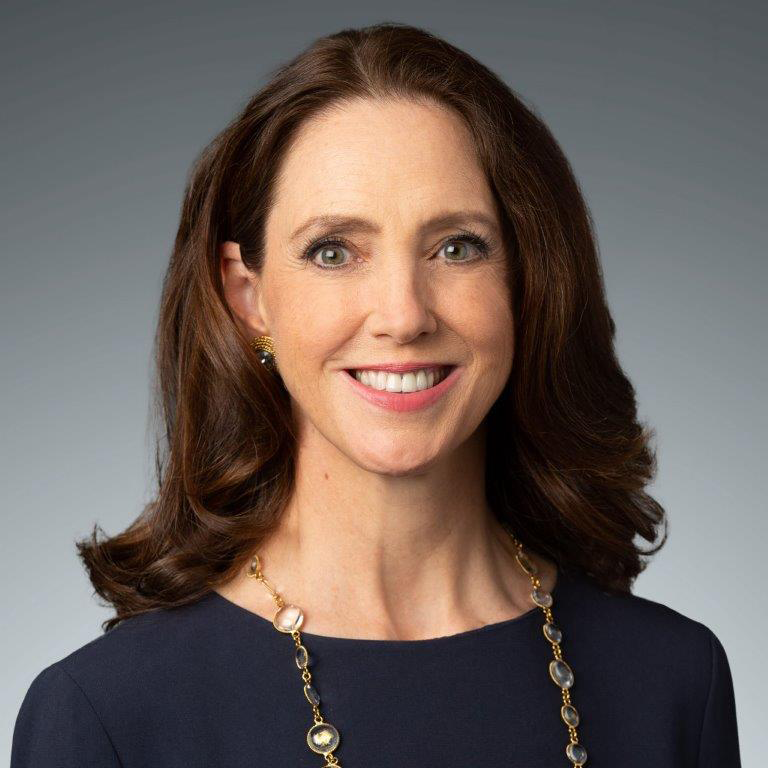
Constance Hunter
Economist Intelligence Unit
Constance Hunter currently serves as the Chief Economist at the Economist Intelligence Unit. Prior to her current role, Ms. Hunter was Executive Vice President, Global Head of Strategy & ESG for AIG.
Ms. Hunter is an expert in macroeconomic and industry analysis, with a track record of using data driven sectoral analysis to be ahead of the curve on pivotal economic events, including the impacts of COVID-19 on the U.S. and other global economies, the 2007 real estate and credit crisis, and the 2001 bust of the Dotcom bubble.
Prior to joining AIG, Hunter was the chief economist for KPMG, responsible for macroeconomic analysis and forecasting. She was also a member of KPMG's Growth and Strategy Leadership team and served on the advisory board of the firm's pension committee. She previously served as deputy chief investment officer at AXA Investment Managers, helping lead the management of more than $500 billion in fixed income assets.
Hunter is a past president and former board member of the National Association for Business Economics (NABE), where she has also been recognized as a fellow and serves on the NABE Statistics Committee. She is on the board of the National Bureau for Economic Research. She also serves as board chair of GallopNYC, a nonprofit organization that offers disabled New Yorkers therapeutic horsemanship programs.
Hunter holds a B.A. in economics and sociology from New York University and a master's from Columbia University's School of International and Public Affairs. She also holds the Certified Business Economist designation from the National Association for Business Economics.
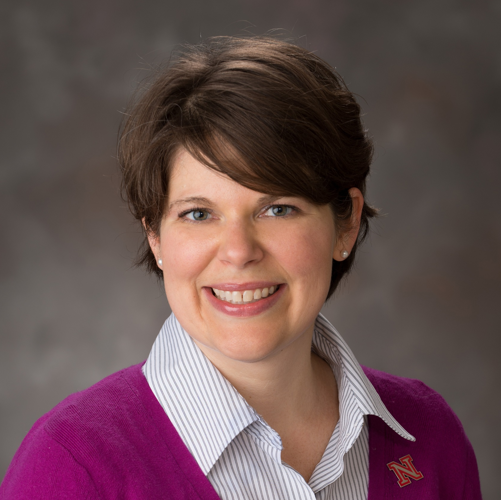
Kristen Olson
University of Nebraska-Lincoln
Kristen Olson is the Leland J. and Dorothy H. Olson Professor in Sociology and director of the Bureau of Sociological Research at the University of Nebraska-Lincoln. She is also editor-in-chief of the Journal of Survey Statistics and Methodology. Olson’s research includes nonresponse adjustments, mixed-mode surveys, interviewer effects, paradata, the intersection of nonresponse and measurement errors, within-household selection in self-administered surveys, and questionnaire design.
Olson’s work has appeared in numerous journals, including Public Opinion Quarterly and Journal of the Royal Statistical Society. She was the lead editor of a volume published by CRC Press in 2020 on Interviewer Effects from a Total Survey Error Perspective. She was principal investigator on an NSF-Census Research Node examining innovative methods of collecting data using computerized survey instruments, with a sophisticated mix of experimental methods and multilevel and longitudinal analytic models. She also is co-investigator on two National Institutes of Health grants examining use of ecological momentary assessment methods to capture multiple measurements each day with youth experiencing homelessness in Midwestern cities.
Olson teaches graduate-level classes on statistical analysis, survey sampling, analysis of complex survey data, missing data, and total survey error. She has served on the editorial board of publications including Sociological Methodology and The Sociological Quarterly. She is an elected fellow of the American Statistical Association and the American Association for the Advancement of Science.
Olson has an M.S. in survey methodology from the University of Maryland and a Ph.D. in survey methodology from the University of Michigan.

Peter Schott
Yale University
Peter K. Schott is the Juan Trippe Professor of International Economics at the Yale School of Management. He is also a research associate at the National Bureau of Economic Research, a research fellow at the Centre for Economic Policy Research, and a research associate at the Center for Economic Studies at the U.S. Census Bureau. He is also the executive director of the Yale branch of the New York Federal Statistical Research Data Center.
Schott’s research focuses on how countries, firms, and workers are affected by globalization. His most recent papers examine developing countries such as China improving their product quality, U.S. exporters abandoning Asian export markets following the 1997 financial crisis, and U.S. multinationals engaging in transfer-pricing.
Schott has an M.S. in political science and a Ph.D in business economics from the University of California, Los Angeles and a B.S. in finance from the University of Pennsylvania.
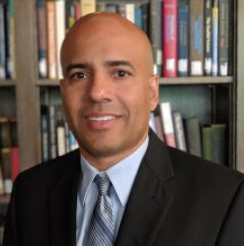
Mel Stephens
University of Michigan
Mel Stephens is professor of economics at the University of Michigan, with a courtesy appointment at the Ford School. He serves as a research affiliate at the Population Studies Center and a faculty associate at the Survey Research Center, both within the Institute for Social Research. Stephens is also affiliated with the National Bureau of Economic Research, currently as a research associate. He has previously served as a member of the Academic Research Council at the Consumer Financial Protection Bureau.
Stephens is a labor economist whose research interests include consumption and savings, aging and retirement, education, the impact of local labor market fluctuations on household outcomes, and applied econometrics. He received his B.A. in economics and mathematics from the University of Maryland and his Ph.D. in economics from the University of Michigan.

Don Unser
Circana
Don Unser is president of thought leadership for Circana, which advises companies on consumer behavior.
Unser’s is an expert in consumer and retail trends spaning a wide range of categories. He analyses industry and category performance, the state of retail, and the winning strategies of best-in-class companies. He is an advisor to many successful brands, including companies such as Target, Apple, Best Buy, and Newell.
Prior to joining Circana, Unser was a 20-year veteran at Hewlett-Packard and held a variety of positions with the company, including vice president of consumer market sales. He is a member of the Retail Industry Leaders Association’s Board of Directors.
Unser has an MBA from the University of Tampa and a B.S. in business and finance from the University of Central Florida.

Christopher Wheat
JPMorgan Chase & Co.
Chris Wheat is a managing director at JPMorgan Chase & Co. and co-president of the JPMorgan Chase Institute, where he leads and develops the research agenda on small business, local economic development, and inclusive banking. His recent work has focused on racial gaps in financial outcomes for households and small businesses, the impact of the Payroll Protection Program on small business activity, and the role of online retail in shaping outcomes in and across cities. His work has been cited by federal and local policymakers.
In addition to leading research, Wheat is invested in work on diversity, equity, and inclusion at both the institute and JPMorgan Chase, serving as a mentor, leader, and adviser to young Black professionals across the firm. He serves on the board of the Association for Enterprise Opportunity, and regularly joins industry leaders and other experts in joint advisory work on small business economic policy.
Previously, Wheat served as the director of analytics at a financial technology startup, where he led the development of advanced analytics algorithms. He previously was an assistant professor at the MIT Sloan School of Management and at the Center for Urban Entrepreneurship & Economic Development at Rutgers Business School. As a faculty member, he taught and researched topics in strategy, entrepreneurship, global microfinance, economic sociology, and social network analysis. He earned a B.S.E. in mechanical and aerospace engineering from Princeton University, an M.S. in computer science from Stanford University, an M.A. in sociology from Harvard University, and a Ph.D. in organizational behavior from Harvard University.
Meetings
Agenda
Current Population Survey Challenges: Lessons from International Labor Market Surveys
- David Freeman, Office for National Statistics, United Kingdom
The Labour Force Survey in the UK - Vincent Dale, Statistics Canada
Restoring LFS Response Rates: The Canadian Experience - Background Material
Ensuring that the Labour Force Survey Remains the Cornerstone of Canada’s Labour Market Information Ecosystem - Frank Schüller and Jörg Enderer, Federal Statistical Office of Germany
The German Microcensus/LFS – recent improvements and future challenges - Discussant: Mel Stephens, FESAC Member
Discussant Presentation - Discussant: Gopi Shah Goda, FESAC Member
Discussant Presentation - FESAC Members
Committee Discussion
Measuring AI
- Emin Dinlersoz, Census Bureau
Measuring AI Use by U.S. Businesses - Michael Wolf, Bureau of Labor Statistics
Identifying Structural Change in BLS Data - Tina Highfill, Bureau of Economic Analysis
Concepts and Challenges of Measuring Production of Artificial Intelligence in the U.S. Economy - Discussant: Avinash Collis, FESAC Member
- Discussant: Rajshree Agarwal, FESAC Member
Discussant Presentation - FESAC Members
Committee Discussion
Agenda
Big Data for Employment Measurement
- Brian Quistorff, Bureau of Economic Analysis; Eric English, Census Bureau
Expanding the Frontier of Economic Statistics Using Big Data: A Case Study of Regional Employment - Ryan Decker, Board of Governors of the Federal Reserve
Expanding the Frontier of Economic Statistics Using Big Data - David Mericle, Goldman Sachs
Big Data for Regional Employment and Other Economic Statistics - Svenja Gudell, FESAC Member
Discussion: “Expanding the Frontier of Economic Statistics Using Big Data: A Case Study of Regional Employment” - FESAC Members
Committee Discussion
Annual Integrated Economic Survey (AIES)
- Edward Watkins and Lisa Donaldson, Census Bureau
Annual Integrated Economic Survey (AIES) Update
Q&A
Supply Chain Measurement
- Christian Moscardi and Nidaal Jubran, Census Bureau
Supply Chain Initiatives at the U.S. Census Bureau - Jonathan Weinhagen, Bureau of Labor Statistics
Measuring Price Change Along Supply Chains Using Industrial Price Data - Thomas Howells, Bureau of Economic Analysis
Measuring Global Supply Chains: An Update from BEA - Adam Schafer, CHIPS for America
CHIPS for America Update - FESAC Members
Committee Discussion
Agenda
Modernizing the Current Population Survey (CPS)
- Kyra Linse, Census Bureau and Nicholas Johnson, Bureau of Labor Statistics
Current Population Survey (CPS) Modernization - Background Material
https://www.census.gov/programs-surveys/cps/about/modernization.html
https://www.bls.gov/cps/methods/response_rates.htm - Justin McIllece, Bureau of Labor Statistics
The Effect of Declining Response Rates on CPS and LAUS Estimates - Discussant: Jason Faberman, FESAC Member
Modernizing the Current Population Survey
New Challenges: AI Ready Federal Data
- Oliver Wise, Office of the Under Secretary for Economic Affairs
Data Democratization in the Age of AI
How We Release the Economic Data: New Technology for Better Data Access
- Emily Liddel, Bureau of Labor Statistics
BLS Data Dissemination - Jeannine Aversa, Bureau of Economic Analysis
Presenting Data: What do Customers Want? - Nicole Davis and Daniel Summers, Census Bureau
Central Indicator Data Repository (CIDR) - Sallie Keller, Census Bureau
Introducing the Statistical Product First Approach - Discussant: Constance Hunter, FESAC Member
The Future is Now: US Statistical Agency Data Accessibility
Agenda
Data Privacy
- Margaret Beckom & Anthony Caruso, Census Bureau; William Sexton, Tumult Labs
New Formal Privacy Methods for Business Populations - Gabriel Medeiros, Bureau of Economic Analysis
Differential Privacy and Adjacent Methods: A Case Study Involving Federal Tax Information - Dan Yorgason, Bureau of Economic Analysis
Exploring Noise Infusion for Disclosure Avoidance at BEA - Background Material
Exploring Noise Infusion for Disclosure Avoidance at BEA - Daniell Toth, Bureau of Labor Statistics
Disclosure Limitation Method for Establishment Data - Kristen Olson, FESAC Member
Discussion: Data Privacy
Measuring and Presenting Inflation
- Robert Kornfeld, Bureau of Economic Analysis
High Inflation in BEA’s Statistics - Paul Bucchioni, Census Bureau
Adjustments for Economic Indicators - Brian Adams, Bureau of Labor Statistics
Housing Inflation Measurement - Alan Detmeister, UBS
Discussion: Measuring and Presenting Inflation - Fiona Greig, FESAC Member
Discussion: Measuring and Presenting Inflation
Agenda
Reengineering the Census Bureau’s Annual Economic Surveys (update)
- Blynda Metcalf & Edward Watkins, Census Bureau
Annual Integrated Economic Survey (AIES)
Seasonal Adjustment Post-Pandemic
- Shelly Smith, Bureau of Economic Analysis
Seasonal Adjustment Post-Pandemic - Thomas Evans & Richard Tiller, Bureau of Labor Statistics
The Effect of the Pandemic on the Seasonal Adjustment of BLS Labor Force Estimates - Kathleen M. McDonald-Johnson & Demetra Lytras, Census Bureau
Seasonal Adjustment Post-Pandemic - Pat Bajari, FESAC Member
Discussion: Seasonal Adjustments
Survey Non-Response
- Doug Williams, Bureau of Labor Statistics
Trends, Challenges, and Strategies - Carolyn Pickering, Census Bureau
Nonresponse In Household Surveys Conducted by the U.S. Census Bureau - Ricardo Limes, Bureau of Economic Analysis
Survey Non Response: A Progress Report from BEA - Erica Groshen, FESAC Member
Survey Nonresponse: Discussion
Agenda
Committee on National Statistics of the National Academies (CNSTAT) Report on Improving Cost-of-Living Indexes and Consumer Inflation Statistics in the Digital Age
- Daniel E. Sichel, Wellesley College
Modernizing the Consumer Price Index for the 21st Century - Jeffrey Hill and Robert Cage, Bureau of Labor Statistics
Improving Consumer Inflation Statistics in the Digital Age: BLS Response to the CNSTAT Report - Background Material
Report: Modernizing the Consumer Price Index for the 21st Century
Distributional Measures at Census, BEA, and BLS
- Jonathan Rothbaum and Nikolas Pharris-Ciurej, Census Bureau
Innovations in Income and Mobility Measures - Marina Gindelsky, Bureau of Economic Analysis
BEA Distribution of Personal Income Statistics - Thesia Garner, Bureau of Labor Statistics
BLS Distributional Statistics with focus on “Distributions of PCE and CE Consumption"
Improving Disclosure Protections on the Current Population Survey Public Use File
- Eloise Parker, Gary Benedetto, and Kyra Linse, Census Bureau
Improving Disclosure Avoidance Procedures for the Current Population Survey Public Use File - Background Material
Paper: Improving Disclosure Avoidance Procedures for the Current Population Survey Public Use File
Meeting Minutes
Agenda
Reengineering the Census Bureau’s Annual Economic Surveys
- Goal Statement
- Blynda Metcalf and Jenny Thompson, Census Bureau
Annual Integrated Economic Survey (AIES)
FESAC AIES Responses - Edward Morgan, Bureau of Economic Analysis
Reengineering the Census Bureau’s Annual Economic Surveys - Michael Brill, Bureau of Labor Statistics
Annual Integrated Economic Survey - BLS Discussant - Kimberly Bayard, Federal Reserve Board
Re-engineering the Census Bureau’s Annual Economic Surveys-Reactions and Implications for the Federal Reserve
Measuring Business Exits & Deaths
- Goal Statement
- Ryan Decker, Federal Reserve Board
Measuring Business Exit - John Stewart, Bureau of Labor Statistics
Bureau of Labor Statistics-Current Employment Statistics: Birth Death Methodology Adjustments During the Pandemic - Brandy Yarbrough and Martha Stinson, Census Bureau
U.S. Census Bureau Programs measuring Business Births and Deaths - John Coglianese, Federal Reserve Board
Signals from Entry/Exit vs. Continuers in CES - Michael Dalton, Bureau of Labor Statistics
Measuring Business Exits During the COVID-19 Pandemic - André Kurmann, Drexel University
Comments on Measuring Business Exits During the Pandemic - AYŞEGÜL ŞAHIN, University of Texas, Austin/NBER
Business Exits During the Covid-19 Pandemic
Planning for a Comprehensive Consumption Measure using Consumer Expenditure Data
- Goal Statement
- Thesia I. Garner and Adam Safir, Bureau of Labor Statistics
Consumption Measurement with Consumer Expenditure Surveys Data: A Research Project
Watch the Planning for a Comprehensive Consumption Measure using Consumer Expenditure Data Session
Agenda
Developing Experimental Statistics to Measure Economic Activity
- John Friedman, Brown University
The Economic Impacts of COVID-19: Evidence from a New Public Database Built Using Private Sector Data - Sonya Porter, U.S. Census Bureau; Abe Dunn, Bureau of Economic Analysis, Joe Piacentini, Bureau of Labor Statistics
Developing Experimental Statistics to Measure Economic Activity in Real Time
-
Background Material
- FESAC Statement on Data Synchronization
- Treasury Data Synchronization Proposal
Source - General Explanations of the Administration’s Fiscal Year 2022 Revenue Proposals U.S. Department of the Treasury
Exploring Data Sources of the Future: Learning and Employment Records
- Goal Statement
- Erica Groshen, FESAC Member; Matt Gee, Brighthive
JEDx Briefing - Background Material:
Developing and Using Public-Private Data Standards for Employment and Earnings Records
Economic Data Gaps Revealed by the Pandemic Economy
- Goal Statement
- Jon Willis, Federal Reserve Bank of Atlanta
Data Gaps During the Pandemic: Insights From a Data Consumer - Dick Rippe, FESAC Member
Session on Data Gaps - Catherine Rampell, The Washington Post
Economic Data Gaps Revealed by the Pandemic Economy - Background Material
AEA Committee on Economic Statistics Economic Measurement of Consequences of Systemic Racism: Challenges and Opportunities
Agenda
Filling Data Gaps in International Trade Statistics
- Abstract
- J. Bradford Jensen, Georgetown University, NBER
Data Gaps in International Trade Statistics - Tom Howells, Bureau of Economic Analysis
New Data for Analyzing Global Value Chains - Fariha Kama, U.S. Census Bureau
Business Dynamics of Globally Engaged Firms: Data Challenges - Susan Fleck, Bureau of Labor Statistics
Net Input Price Indexes – Accounting for Imports in the Cost of Production
Update Session: Shifting to geometric weighting for detailed inputs to PPIs
- Robert Martin & Jonathan Weinhagen, Bureau of Labor Statistics
What is the Appropriate Index Formula to Estimate Producer Price Change?
Modernization in Data Collection and Methods in Response to COVID-19
- Abstract
- Ursula Oliver, Bureau of Labor Statistics
Collection in the Time of Corona - Kyra Linse, U.S. Census Bureau
Current Population Survey - Adaption due to the Coronavirus Pandemic - Rachel Soloveichik, Bureau of Economic Analysis
Consumer Prices During a Stay-in-Place Policy: Theoretical Inflation for Unavailable Products
Background Material
Consumer Prices During a Stay-In-Place Policy: Theoretical Inflation for Unavailable Products
- Watch the full June 12 FESAC meeting.
Agenda
International Response to Pandemic
- Jennifer Withington, Statistics Canada
Statistics Canada – Responding to the Pandemic - Jonathan Athow, Office for National Statistics
Measuring the UK Economy During Lockdown: Challenges and Opportunities - Paul Schreyer, Organisation for Economic Co-operation and Development
Ensuring High Quality Statistics in Response to Covid-19: OECD Initiatives
Private/Public Data Projects Addressing Pandemic-Related Issues
- John Stevens, Federal Reserve Board
The Potential for Alternative Data in Official Statistics - Hal Varian, Google
Search and Schemas
Google Dataset Search by the Numbers - Vivek Pandya and Costa Lasiy, Adobe
Adobe Digital Economy Index - Abe Dunn, Bureau of Economic Analysis
Measuring the Effects of the COVID-19 Pandemic on Consumer Spending Using Card Transaction Data - Jay Stewart, Bureau of Labor Statistics
Adjusting BLS Estimates of Employment and Hours for COVID-19-Related Job Losses - Hyon B. Shin and Kathryn Bonney, U.S. Census Bureau
Census Bureau Pulse Surveys
Agenda
Evidence Act
- Nick Hart, Bipartisan Policy Center
Presentation - A New Era for Federal Data Policy: The Evidence Commission and Beyond - Nancy Potok, Office of Management & Budget Presentation
Big Steps to Increase Data Access for Evidence-Building; Title III of the Evidence Act - Barbara Downs & Heather Madray, U.S. Census Bureau
Presentation - Application Portal for Restricted Data for Federal Statistics - Michael Hawes, U.S. Census Bureau
Presentation - Increasing Access, Reducing Risk: A Conceptual Framework for Tiered Data Access
Technology, Artificial Intelligence and Data
- Daron Acemoglu, Massachusetts Institute of Technology
Presentation - Automation and Work - Daron Acemoglu, Massachusetts Institute of Technology and Pascual Restrepo, Boston University
Background - Robots and Jobs: Evidence from US Labor Markets - Daron Acemoglu, Massachusetts Institute of Technology and Pascual Restrepo, Boston University
Background - Automation and New Tasks: How Technology Displaces and Reinstates Labor - Lucia Foster , U.S. Census Bureau
Presentation - Measuring Business Adoption and Use of Advanced Technologies, Artificial Intelligence, and Data - Nicole Nestoriak, Bureau of Labor Statistics
Presentation - How BLS is Working to Understand the Future Of Work
Agenda
Consumption Poverty Measure
- Nancy Potok, Office of Management and Budget
Poverty Measures: Setting the Stage - Bruce Meyer, University of Chicago
Consumption and Comprehensive Income Poverty - David Johnson, University of Michigan
Consumption Poverty: Measurement Matters
Big Data for 21st Century Economic Statistics
- Matthew Shapiro, University of Michigan, and John Haltiwanger, University of Maryland
"Re-Engineering Key National Economic Indicators" - Kyle Hood, Bureau of Economic Analysis
"Off to the Races: A Comparison of Machine Learning and Alternative Data for Predicting Economic Indicators" - Rebecca Hutchinson, Census Bureau
"Investigating Alternative Data Sources to Reduce Respondent Burden in United States Census Bureau Retail Economic Data Products" - David Friedman, Bureau of Labor Statistics
"Big Data in the U.S. Consumer Price Index: Experiences & Plans"
Background Document
Agenda
Reorganizing Economic Statistical Agencies
- Nancy Potok, Office of Management and Budget
Presentation - Charles Bean, London School of Economics and Office for Budget Responsibility
Presentation
Quality-Adjusted Price Indices Powered by ML and AI
- Pat Bajari and Victor Chernozhukov, Amazon
Presentation
How Modern Disclosure Avoidance Methods Could Change the Way Statistical Agencies Operate
- John Abowd, Census Bureau
Presentation
Background Document: An Economic Analysis of Privacy Protection and Statistical Accuracy as Social Choices - Steven Ruggles, University of Minnesota
Presentation
Background Document: Implications of Differential Privacy for Census Bureau Data and Research - Erica Groshen, Cornell University
Presentation - Kirk Wolter, NORC and University of Chicago
Presentation
Agenda
Seasonal Adjustment
- Dave Wasshausen, Bureau of Economic Analysis
Presentation
Contingent Work and the Gig Economy
- Mike Horrigan, Bureau of Labor Statistics
Presentation - Shanthi Ramnath, Department of the Treasury
Presentation
Background Document: The Rise of Alternative Work Arrangements: Evidence and Implications for Tax Filing and Benefit Coverage - Jim Spletzer, Census Bureau
Presentation
Background Document: Measuring the Gig Economy: Current Knowledge and Open Issues - Jonathan Hall, Uber
Presentation - Christopher Hooton, George Washington University and the Internet Association
Presentation
Background Document: America's online 'jobs': conceptualizations, measurements, and influencing factors - Diana Farrell, JPMorgan Chase Institute
Presentation - Joseph Altonji, Yale University
Presentation
Agenda
Report from the Commission on Evidence-Based Policymaking
- Katharine Abraham, University of Maryland
The Promise of Evidence-Based Policymaking
Background Material: CEP final report 9-7-2017
Background Material: BPC blog post on Ryan-Murray legislation 11-1-2017 - John Haltiwanger, University of Maryland
- Matthew Shapiro, University of Michigan
- Kirk Wolter, NORC at the University of Chicago
Comments on the Promise of Evidence-Based Policymaking
The Digital Economy
- Erich Strassner, Bureau of Economic Analysis
Highlights and Challenges of Measuring the Digital Economy - David Friedman, Bureau of Labor Statistics
Measuring the Digital Economy at BLS: Focus on Price Index Programs - Nathan Goldschlag, Census Bureau
Direct and Indirect Measures of the Economic Impact of the Digital Economy
Background Material: The Management and Organizational Practices Survey (MOPS): An Overview
Background Material: Business Dynamics Statistics of High Tech Industries
Background Material: Measuring the Gig Economy, Current Knowledge and Open Issues - Susan Athey, Stanford University
- Patrick Bajari, Amazon
Measurement of the Digital Economy
Agenda
The Role of the Statistical Agencies in the 21st Century
- Robert Moffitt, Johns Hopkins University
Moffitt Remarks - John Haltiwanger, University of Maryland
The Role of Statistical Agencies in the 21st Century
Globalization
- Tom Howells, U.S. Bureau of Economic Analysis
Highlights and Challenges of Measuring Global Production - Brad Jensen, Georgetown University and U.S. Census Bureau, and Fariha Kamal, U.S. Census Bureau
Business Dynamics of Globally Engaged Firms - Mina Kim, U.S. Bureau of Labor Statistics
FDI and the Task Content of Domestic Employment for U.S. Multinationals
Background Material: FDI and the Task Content of Domestic Employment for U.S. Multinationals
Background Material: Domestic employment in U.S.-based multinational companies - Hal Varian, Google
Measurement Challenges in High Tech - Susan Helper, Case Western Reserve University
Global Discussion - David Weinstein, Columbia University
Comments on Presentations
Agenda
Seasonal Adjustment
- Brent Moulton, U.S. Bureau of Economic Analysis
Residual Seasonality in GDP and GDI: Findings and Next Steps
Background Material: Residual Seasonality in GDP and GDI: Findings and Next Steps - Tucker McElroy, U.S. Census Bureau
Challenges with Seasonal Adjustment
Background Material: Time Series seasonal adjustment using regularized singular value decomposition - Jonathan Wright, Johns Hopkins University
Comments on Seasonal Adjustment - Maurine Haver, Haver Analytics
- Dick Rippe, Evercore ISI
FESAC Meeting on Seasonal Adjustment
Evidence-Based Policymaking Commission
- Katharine Abraham, University of Maryland
Commission on Evidence-Based Policymaking
Federal Statistical Research Data Centers
- Barbara Downs and Lucia Foster, U.S. Census Bureau
Federal Statistical Research Data Centers (FSRDC)
Measuring Retail Trade
- Ron Jarmin, U.S. Census Bureau
- David Friedman, U.S. Bureau of Labor Statistics
- Aditya Aladangady, Federal Reserve Board, and Dan Moulton, Palantir Technologies
Exploring New Sources of Spending Data: First Data Transactions Data - Matthew Shapiro, University of Michigan
Using Naturally ‐ Occurring Data for Retail Sales, CPI, and PCE: The Future is Now - Martin Fleming, IBM
Retail Sales – The New Reality
Agenda
Measuring Retail Trade with Administrative Data
- Ellen Hughes-Cromwick, Chief Economist, U.S. Department of Commerce
Improving the Quality, Scope, and Timeliness of Economic Statistics - Abe Dunn, U.S. Bureau of Economic Analysis
Improving Regional PCE Estimates Using Credit Card Transaction Data - Scott Scheleur, U.S. Census Bureau
Retail Big Data Overview - David Friedman, U.S. Bureau of Labor Statistics
Measuring Retail Trade with Administrative Data: U.S. Bureau of Labor Statistics - Matthew Shapiro, University of Michigan
Measuring Retail Trade with Administrative Data (continued)
- David Weinstein, Columbia University and NBER, and Steve Redding, Princeton University and NBER
Big Data and the Measurement of Prices and Real Economic Activity
Background Material: A Unified Approach to Estimating Demand and Welfare
Background Material: Quantifying the Sources of Firm Heterogeneity - Judith Chevalier, Yale University and NBER
Best Prices
Background Material: Best Prices - Krishna Rao, Zillow
The Zillow Experience - Chris Wheat, J.P. Morgan Chase Institute
A Global Think Tank
BackgroFund Material: Local Consumer Commerce
Background Material: Profiles of Local Consumer Commerce - Joe Reisinger, Premise
Premise
Agenda
The Future of Economic Statistics
Measuring Skills Acquisition
- Sharon Boivin, National Center for Education Statistics, U.S. Department of Education
Developing New Definitions and Data Sources
Background Material: Adult Education and Training Survey
Background Material: Draft Survey Items - Christina Pena, Workforce Data Quality Campaign (WDQC)
Connecting Education and Training to Workforce Outcomes - Morris Kleiner, University of Minnesota
Measuring Occupational Regulation by Government
Background Material: Reforming Occupational Licensing Policies
Background Material: Occupational Licensing: A Framework for Policymakers
Background Material: Certification and License Items by Survey - Jesse Rothstein, University of California, Berkeley
Discussion
Agenda
The Challenges of Mixed Devices for Survey Data Collection
- The Evolution of Password Requirements in the Consumer Expediture Diary Survey, by Brandon Kopp, U.S. Bureau of Labor Statistics
- Centurion: Internet Data Collection and Responsive Design, by Joe Mistichelli, Glenn Eanes, and Rachel Horwitz, U.S. Census Bureau
- Mobility Enabled: Effects of Mobile Devices on Survey Response and Substantive Measures, by Frances Barlas, GfK Custom Research
- Discussion, by Don Dillman, Washington State University
Commercial Big Data and Official Economic Statistics
- Naturally-Occurring Account Data, by Dan Silverman, Arizona State University.
- Small Business Indicators, by Susan Woodward, Sand Hill Econometrics
- The CFPB Consumer Credit Panel: Direct Use and as a Sampling Frame, by Chris Carroll, Consumer Finance Protection Bureau
- Discussion, by David Johnson, U.S. Bureau of Economic Analysis
- Discussion, by John Eltinge, U.S. Bureau of Labor Statistics
- Discussion, by Ron Prevost, U.S. Census Bureau
Agenda
Improving Business Lists Through Data Sharing
- Data Sharing: Progress and Challenges at BLS by Richard Clayton
- Improving the Business Register Through Data-Sharing: Uses and Challenges by Brandy L. Yarbrough
Background Material by Brandy L. Yarbrough
Improving Business Lists Through Data Sharing: BEA Perspective by Ted Morgan
Discussion: Comments on "Improving Business Lists Through Data Sharing" by John Haltiwanger
FESAC statment on Data Synchronization
Measurement of the Financial Sector
- Enhanced Financial Accounts by Paul Smith
- Producer Price Indexes for Financial Services by Andrew Baer
- FESAC Discussion on the Measurement of Financial Services: Perspective from the National Accounts by Dennis J. Fixler
- OFR's Approach to Data Gaps: A Case Study on Bilateral Repo by Susan Stiehm
- Discussion: Comments on Financial Statistics Session by Dick Rippe
BLS-Census Micro Productivity Project
Agenda
Update
Autocoding
- Using an Autocoder to Code Industry and Occupation in the ACS by Jennifer Cheeseman Day
Background Material by Matthew Thompson, Michael Kornbau, Julie Vesely - Automated Injury Coding by Alexander Measure
Paradata and Adaptive Design
- Early Experience of Adaptive Design Work in the NSCG by Ben Reist
- Paradata and Adaptive Design: Examples from BLS by Scott Fricker
Income and Wage Inequality Statistics
- Inequality Statistics from the LEHD by James Spletzer
- - Background Material by James Spletzer
- Occupational Employment Statistics by Laurie Salmon
- Distributional Estimates in the U.S. National Accounts by Kevin Furlong
- - Background Material by Clinton McCully
- - Background Material by Dennis Fixler and David Johnson
- - Background Material by Selma Goldsmith
Agenda
Housing
- Household Estimates Conundrum by Arthur Cresce
- CPI Housing Initiative by Crystal Konny
- - Background Material
- Discussion: Housing Statistics by Richard Rippe
Affordable Care Act (ACA)
- The Affordable Care Act and Survey Data by Helen Levy
- The ACA and Beyond by Irma Arispe
- Classification of ACA Transactions in the Federal Sector by Benjamin Mandel
- BLS Employment-Based Health Benefits and the ACA by William Wiatrowski
- Health Insurance Coverage Statistics by David Johnson
- Using the MEPS-IC to Understand the Impact of the ACA by Alace Zawacki
- Discussion: ACA-Implications for Statistical Programs by Barry Bosworth
Agenda
Factoryless Goods Producers
- Impact of Globalization on the U.S. Statistical System by Maureen Doherty
- Factoryless Goods Producers in the U.S. Accounts by Dylan Rassier
- Factoryless Goods Producers Agency Update Census by Robert Miller
- BLS Update on Factoryless Goods Producers by David Talan and Vincent Russo
- Discussion: Factoryless Production by Barry Bosworth
- Background Material: Reflecting Factoryless Goods Production in the U.S. Statistical System by Maureen Doherty
The North American Product Classification System (NAPCS) and the Economic Census
- NAPCS Implementation in the Economic Census by John Burns Murphy
- NAPCS and the Economic Census by Ted Morgan
- NAPCS in the Economic Census: BLS Perspectives by David Friedman
- Discussion: Comments on "NAPCS and the Economic Census" by John Haltiwanger
- Discussion: NAPCS and the Economic Census by Jay Breidt
- Background Material: Census Reingineering and the Implementation of NAPCS by John Burns Murphy
Agenda
Presentations
- Measuring What We Spend: Toward a New Consumer Expenditure Survey
- Measuring What We Spend: Toward a New Consumer Expenditure Survey: Recommendations
- BLS Response to CNSTAT Recommendations: The Road Ahead
- Census Response to CNSTAT: Data Collection Issues
- Consumer Expenditure Surveys (CE) Redesign: Implications for National Economic Accounts
- Expanding Upon Issues in Measuring What We Spend: Toward a New Consumer Expenditure Survey
Agenda
Consumer Expenditure Survey Redesign
Financial Sector Statistics
- Response to the Financial Crisis: Office of Financial Research
- US Flow of Funds Accounts: A Snapshot of Ongoing Improvements
- Data and the Crisis
Financial Sector Discussions
- Measurement of the FS: FESAC Response to the Financial Crisis
- Financial Sector Statistics and Systemic Risk
Health Price Statistics
- Meeting Cancelled
- Meeting Cancelled
- Meeting Cancelled
Federal Register Notices
- FESAC December 13, 2024 Meeting Notice
- FESAC Charter Renewal 2024
- FESAC June 14, 2024 Meeting Notice
- FESAC Notice Request for Nominations – February 2024
- FESAC December 8, 2023 Meeting Notice
- FESAC Notice Request for Nominations – July 2023
- FESAC June 9, 2023 Meeting Notice
- FESAC December 9, 2022 Meeting Notice
- FESAC Notice Request for Nominations – October 2022
- FESAC Notice Request for Nominations – December 2021
- FESAC December 10, 2021 Meeting Notice
Current Notices
FESAC Charters
- FESAC Charter Signed September 2024
- FESAC Charter Signed September 2022
- FESAC Charter Amendment Signed July 2021
- FESAC Charter Signed September 2020
- FESAC Charter Signed September 2018
- FESAC Charter Signed September 2016
- FESAC Charter Signed September 2014
- FESAC Charter Signed October 2012
- FESAC Charter Signed October 2010